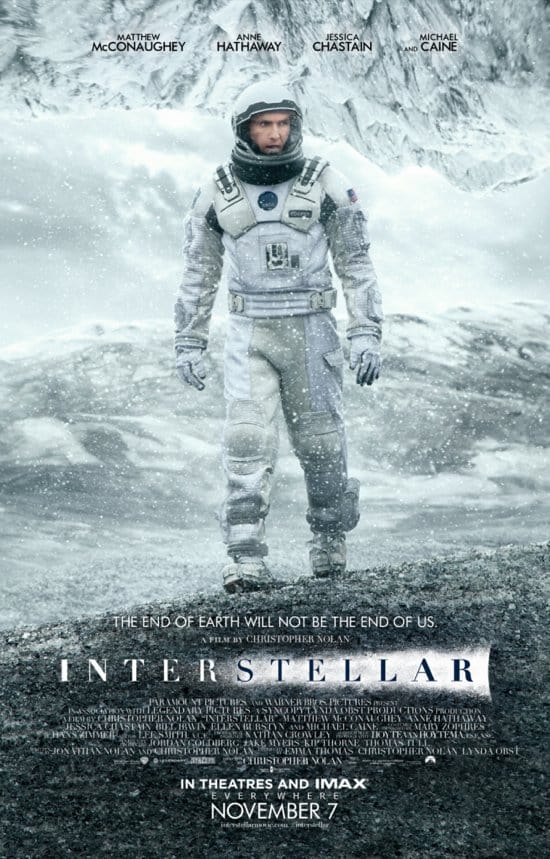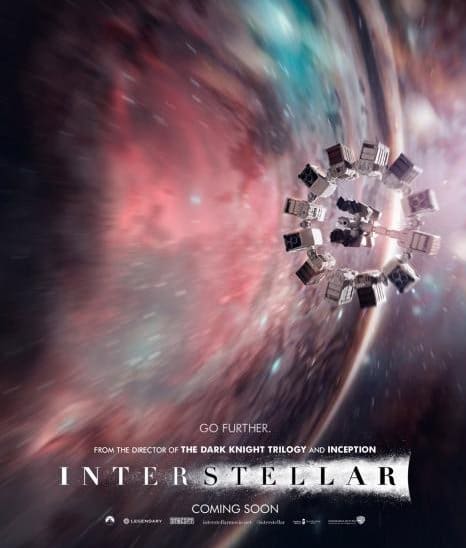‘As some of your own poets have said…’ Acts 17:28
These articles are intended to provide insight into aspects of popular culture which might provide opportunities to speak to non-Christians about the relevance of the gospel. Paul quoted non-Christian poets to make a meaningful connection with unbelievers.
Interstellar is the latest movie by Christopher Nolan, a critically acclaimed director known for his thought provoking Hollywood blockbusters, such as the recent Inception and the Batman trilogy.

Interstellar is science fiction, but not in the vein of Star Wars or superheroes. It is more like 2001: A Space Odyssey, Silent Runnings, and Contact, and visual and thematic echoes of these films are evident.
Earth is suffering from a universal crop blight which is leading to starvation and the slow suffocation of the whole planet. Populations have been decimated and the majority of remaining people and resources are focused on what little farming is possible until the last crops succumb. A mission is launched by Professor Brand to try to find habitable planets in another galaxy, accessible via a worm hole in our solar system. The pilot of this voyage of discovery is ‘Cooper’, a father who must leave his children, Tom and Murph, behind.
The film contains dramatic visuals of the vastness of space, distant planets, light bending wormholes and black holes, along with the life and death situations that the characters face. It also has plenty of science: quantum physics, relativity and the effects of both gravity and time on our characters. In addition the film also explores the cost of separation from loved ones to go on such a mission. Longings for reconciliation and the importance of human contact are vividly portrayed.
Interstellar raises many themes that could lead to fruitful gospel conversation: the way in which the Earth is remarkably suited to sustaining life compared to a hostile universe, the absolute vastness of space and the unique place our planet has in it, right down to the effects of a lie and the guilt it brings, or faith in a father’s promise. One character says, ‘We used to look up at the sky and wonder at our place in the stars; now we just look down and worry about our place in the dirt,’ bemoaning our short term focus on the here and now preventing us considering bigger horizons in life, a situation we are familiar with spiritually!
One central dilemma the film grapples with is that some characters think that the Earth and all its inhabitants should be abandoned and left to perish while a new start for the human race is attempted elsewhere. Others think that they should try to save perishing humanity even at great personal cost and self-sacrifice. A movie that raises questions about which is the best plan of salvation gives us an opportunity to talk about the ultimate Saviour Jesus Christ who didn’t give up on a perishing humanity and leave them to destruction, but rescued us at the ultimate personal cost of self-sacrifice on the cross.
In a film filled with hard science, physics and the theory of relativity, one character at a critical point in the movie speaks of love as being a greater reality that lies behind the observable universe and all its scientific laws, saying, ‘Love isn’t something we invented — it’s observable, powerful, it has to mean something… Love is the one thing that transcends time and space.’ The Bible teaches that before anything existed there was the Triune God — a Father and Son loving each other in the unity of the Spirit from all eternity. As Jesus says in John 17:24: ‘You loved me before the foundation of the world.’ So love really does transcend time and space because before there was time or space or the universe or scientific laws, there was the overflowing love of this Triune God. This is the greater reality that lies behind everything else and only Christianity has this explanation at the heart of its message.
Interstellar is rated 12A for infrequent strong language, moderate threat and violence (BBFC).




